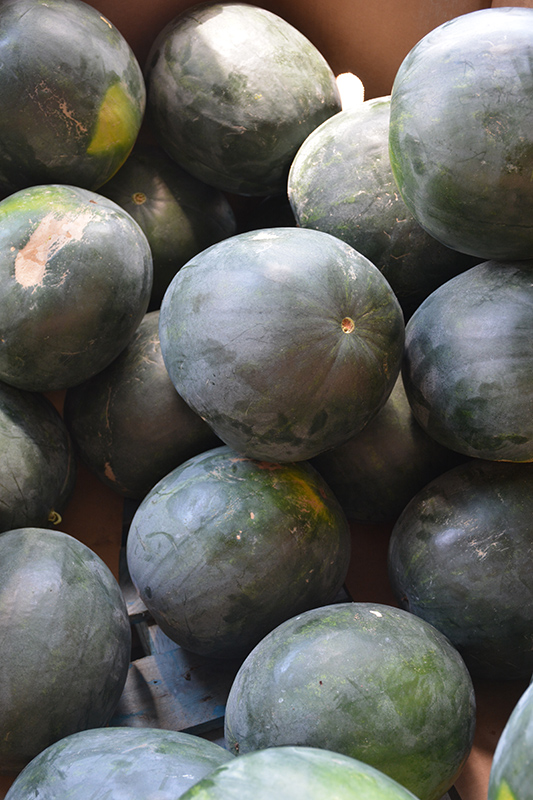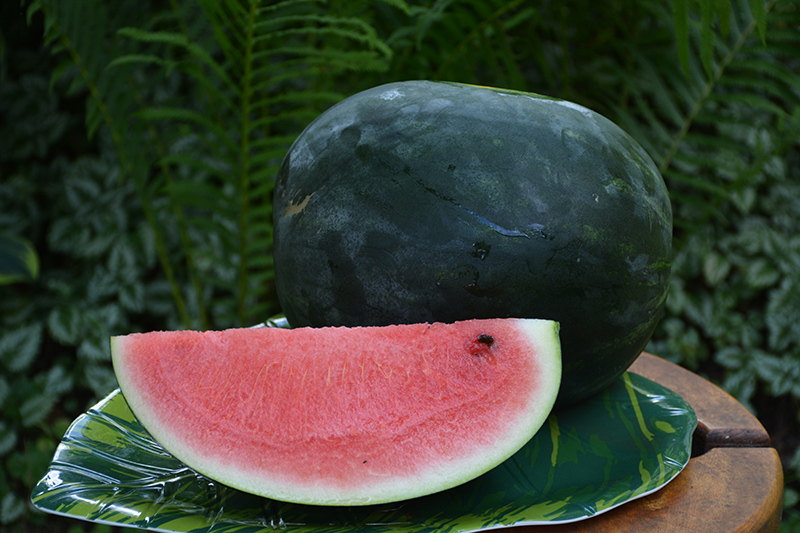Sugar Baby Watermelon
Citrullus lanatus 'Sugar Baby'
Height: 24 inches
Spacing: 3 feet
Sunlight:
![]()
Hardiness Zone: (annual)
Description:
A lovely heirloom, ice box variety; produces round, 12 pound dark green skinned watermelons with near black striping; sweet and fine textured, boasting gorgeous scarlet red flesh perfect for a delicious snack; heat loving and early maturing
Edible Qualities
Sugar Baby Watermelon is an annual vegetable plant that is commonly grown for its edible qualities. It produces dark green round fruit with black stripes and scarlet flesh which are typically harvested when mature. The fruits have a sweet taste and a juicy texture.
The fruit are most often used in the following ways:
- Fresh Eating
- Eating When Cooked/Prepared
- Juice-Making
Planting & Growing
Sugar Baby Watermelon will grow to be about 24 inches tall at maturity, with a spread of 6 feet. When planted in rows, individual plants should be spaced approximately 3 feet apart. Because of its vigorous growth habit, it may require staking or supplemental support. This vegetable plant is an annual, which means that it will grow for one season in your garden and then die after producing a crop.
This plant is typically grown in a designated vegetable garden. It should only be grown in full sunlight. It does best in average to evenly moist conditions, but will not tolerate standing water. It may require supplemental watering during periods of drought or extended heat. It is not particular as to soil pH, but grows best in rich soils. It is somewhat tolerant of urban pollution. Consider applying a thick mulch around the root zone over the growing season to conserve soil moisture. This is a selected variety of a species not originally from North America.

